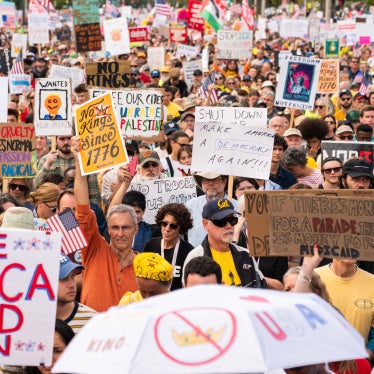This morning, a decade after a group of inmates’ families filed a petition challenging the exorbitant rates charged for interstate jail and prison phone calls, the Federal Communications Commission (FCC) voted to cap the cost of these calls. As Acting FCC Commissioner Mignon Clyburn noted, “it’s been a long time coming.”
Few of us think twice before picking up a phone and dialing a loved one. But for millions of Americans behind bars and their families, a phone call is a luxury. In some states, 15 minutes on the line to a jail or prison can cost as much as $17; an hour-long call once a week can add up to $250 per month. “Too often families are forced to choose between spending scarce money to stay in touch with loved ones or covering life’s basic necessities,” Clyburn said this morning. The FCC’s order will bar prisons from charging more than 21 cents per minute except in “extraordinary circumstances.”
Behind the steep prices are the commissions paid to jails and prisons by phone companies in exchange for exclusive and lucrative contracts, a cost of doing business that the companies pass on to inmates in the form of jacked-up calling rates. (According to the Los Angeles Times, the kickbacks can account for as much as 60 percent of the cost of a phone call.) The phone companies have long argued that the high costs are due to security measures associated with serving correctional facilities, but the 11 states that have banned or reduced kickbacks have seen their prison phone rates plummet with no negative security repercussions.
The high costs of jail and prison phone calls serve only to isolate already vulnerable populations. About 2.7 million children in the US have at least one parent in prison. According to 2005 research by the Urban Institute, women in prisons are housed an average of 160 miles, and men an average of 100 miles, from their children. These distances mean that regular phone calls are vital to maintaining family ties. Studies show that prisoners who lack community and family ties are more likely to reoffend when released from custody, which means that everyone in American society pays when these ties are weakened.
This morning, Clyburn fought back tears as she announced the two-to-one decision. I suspect that such emotion is rare in FCC proceedings, and am grateful that a long-overdue remedy is at hand for the individuals and families who have suffered for years due to predatory phone rates.








